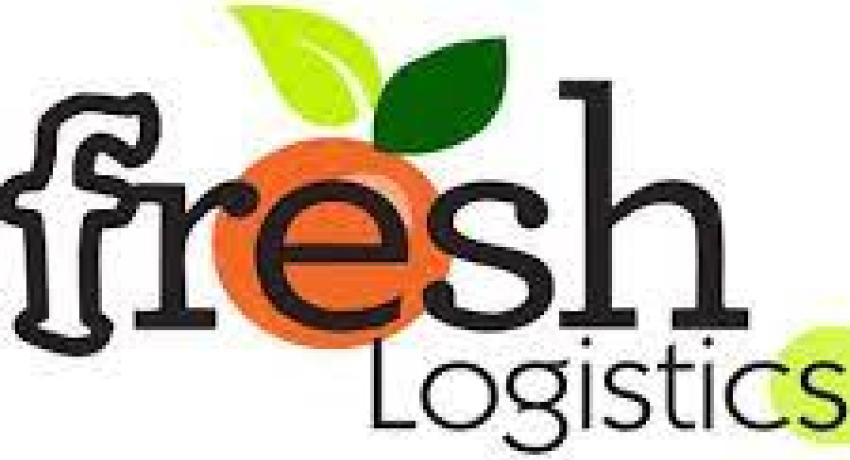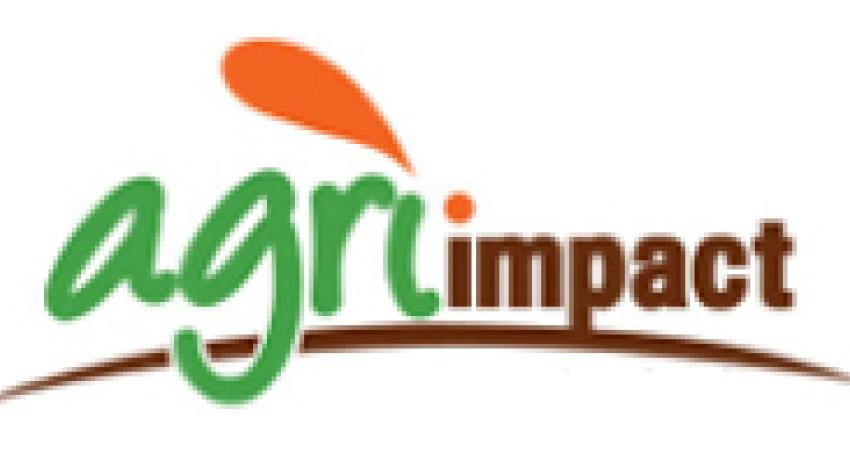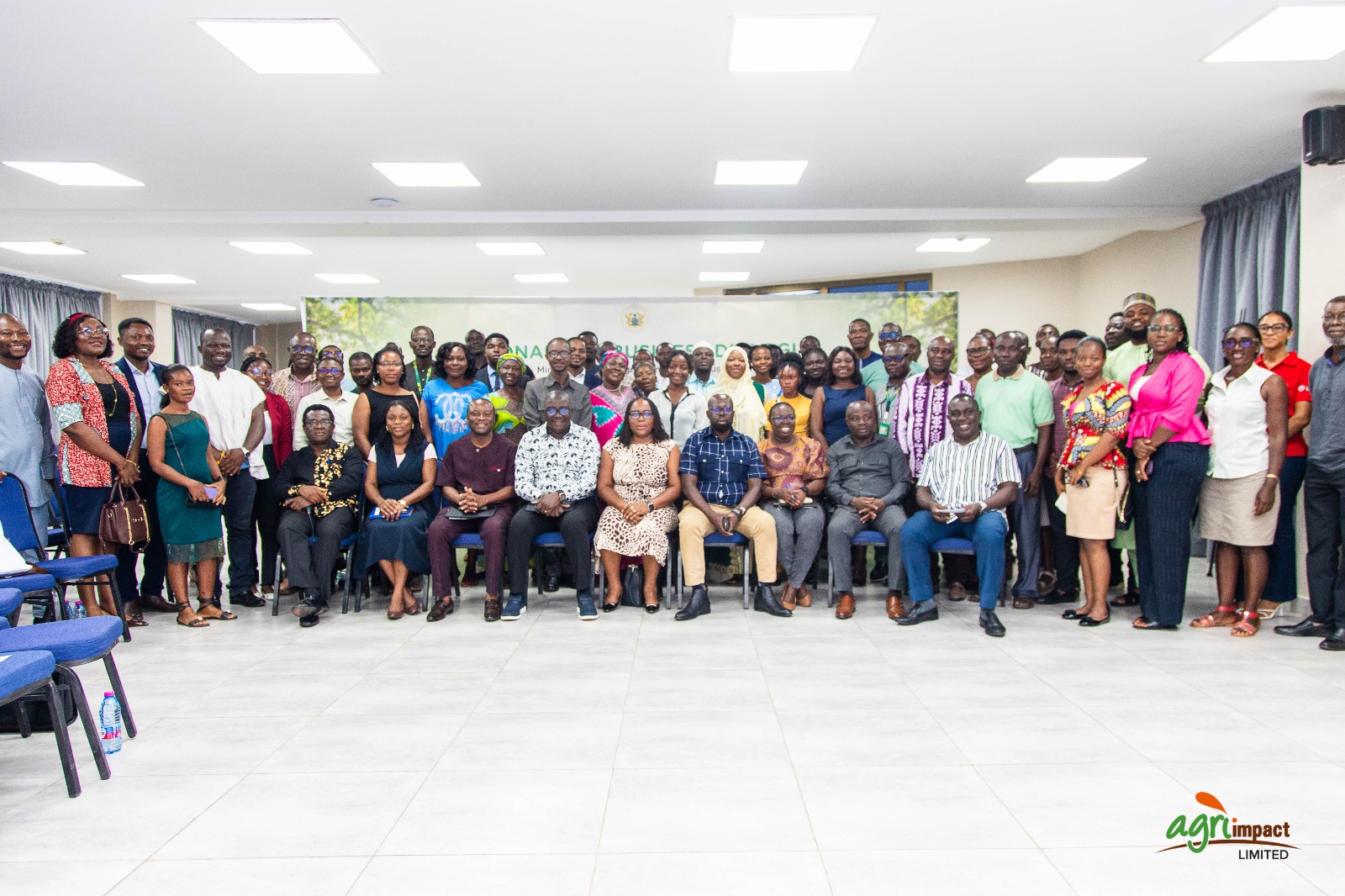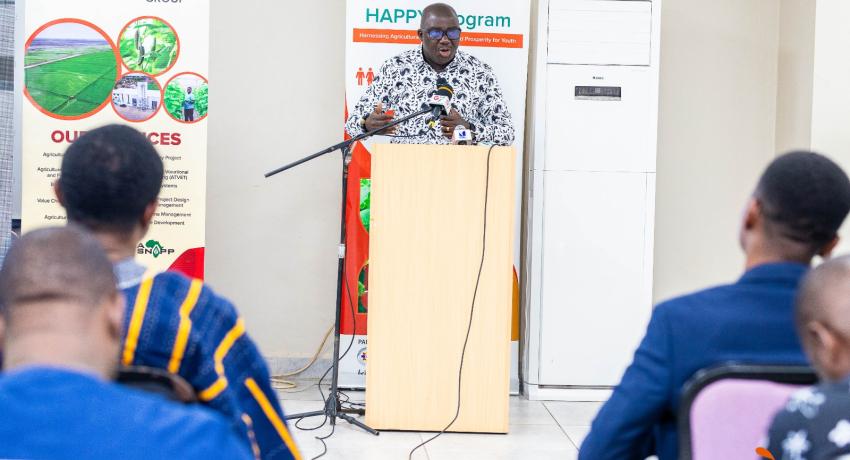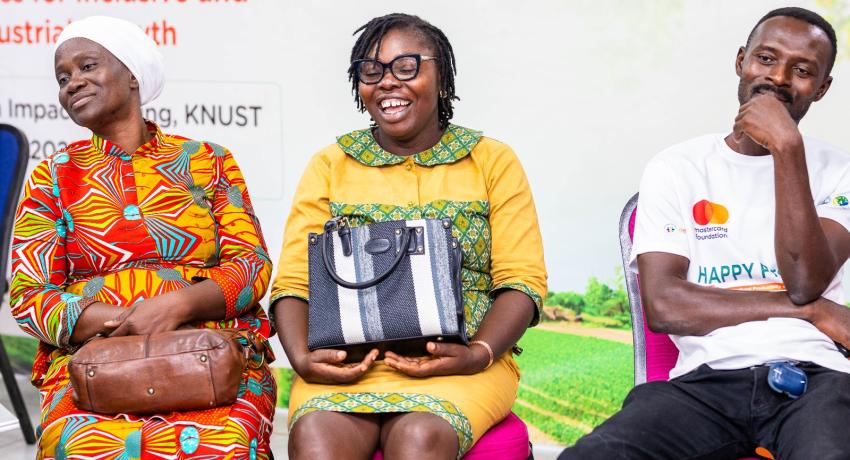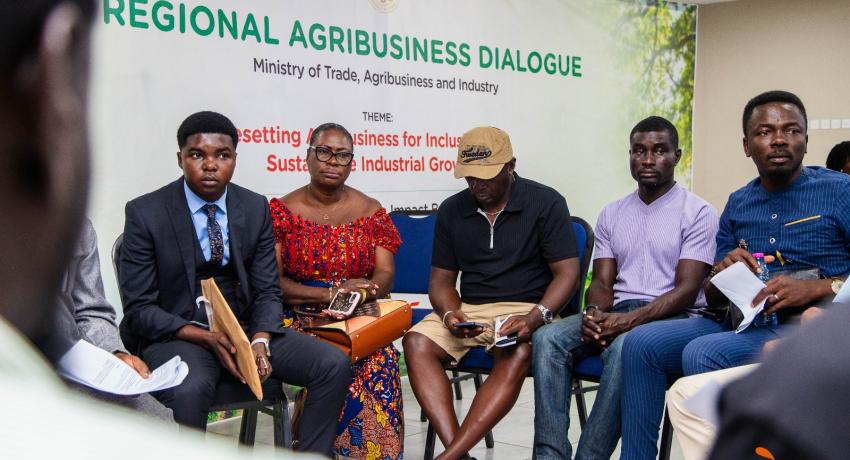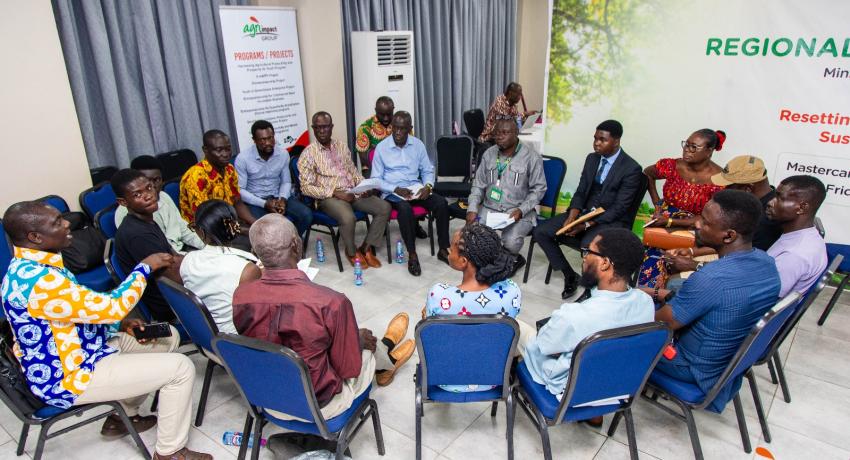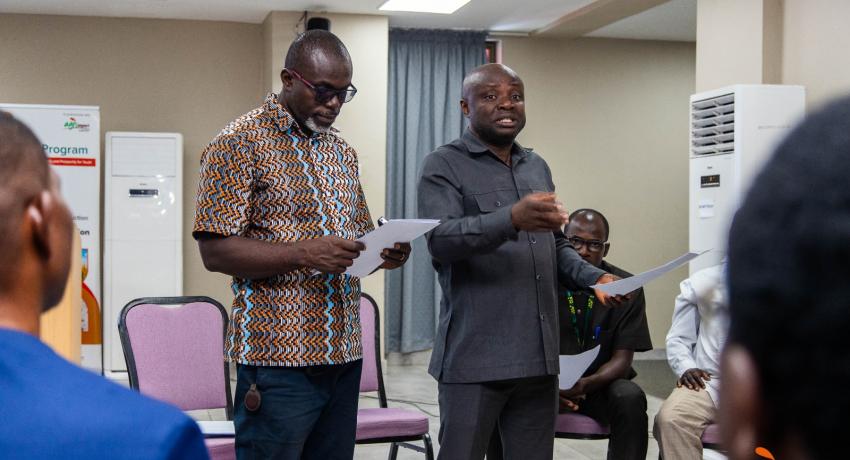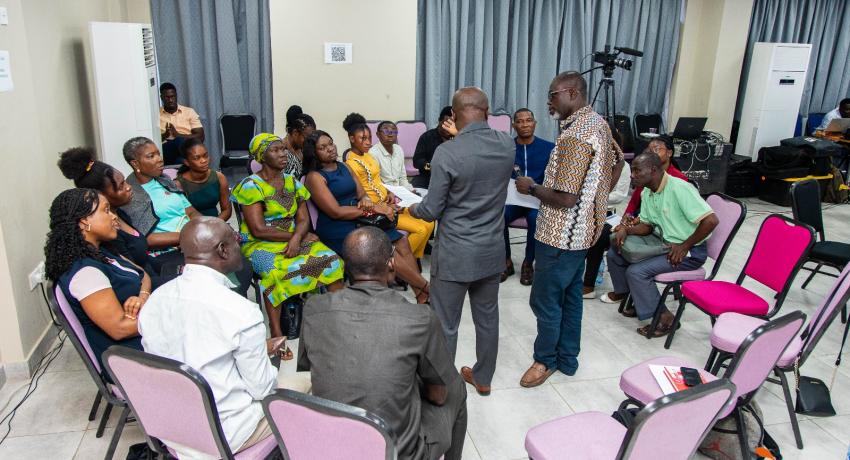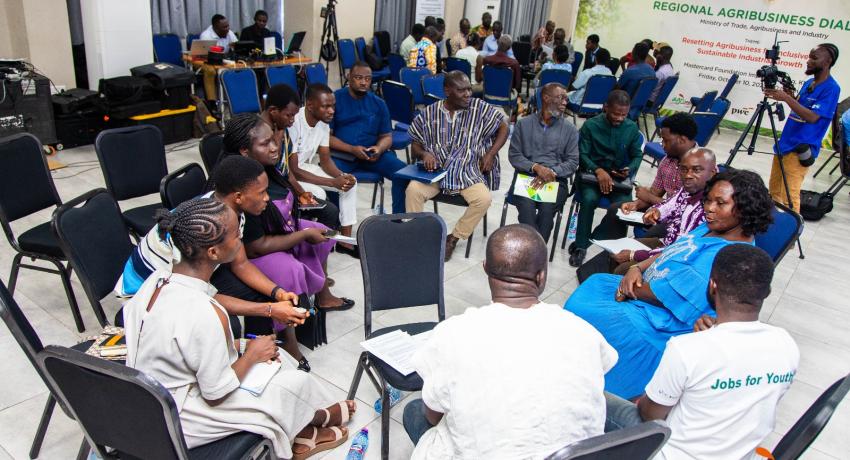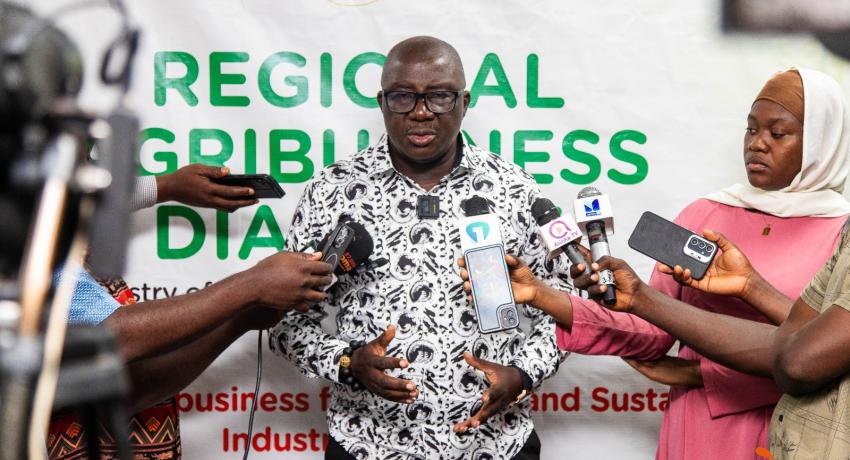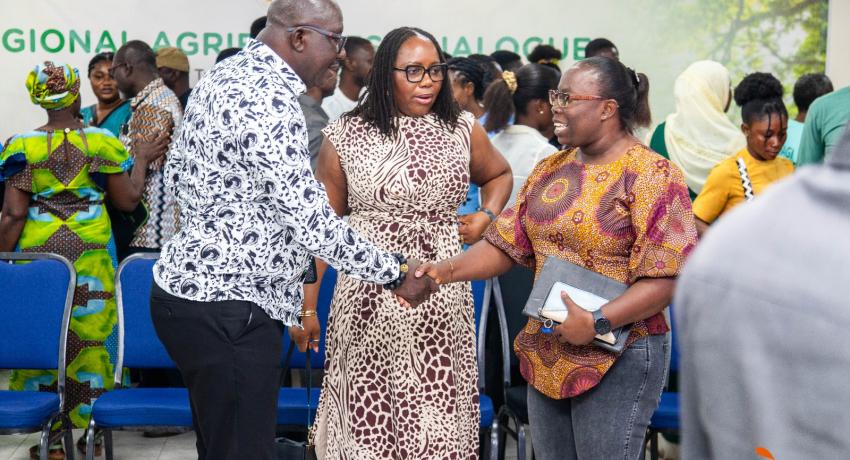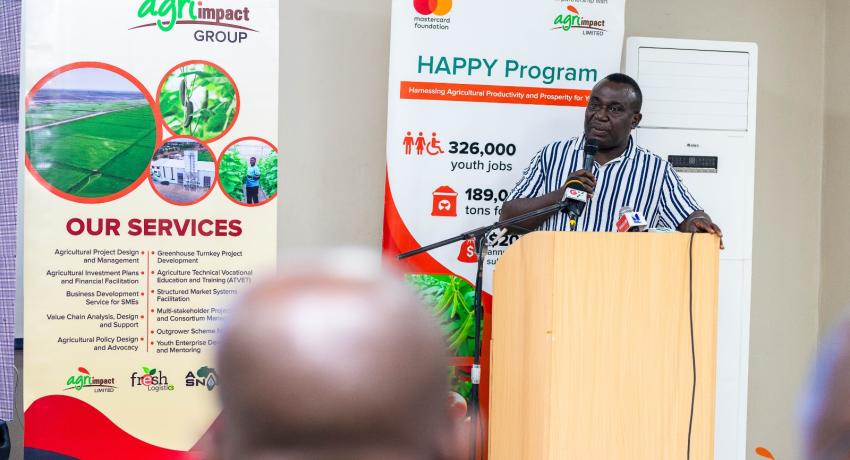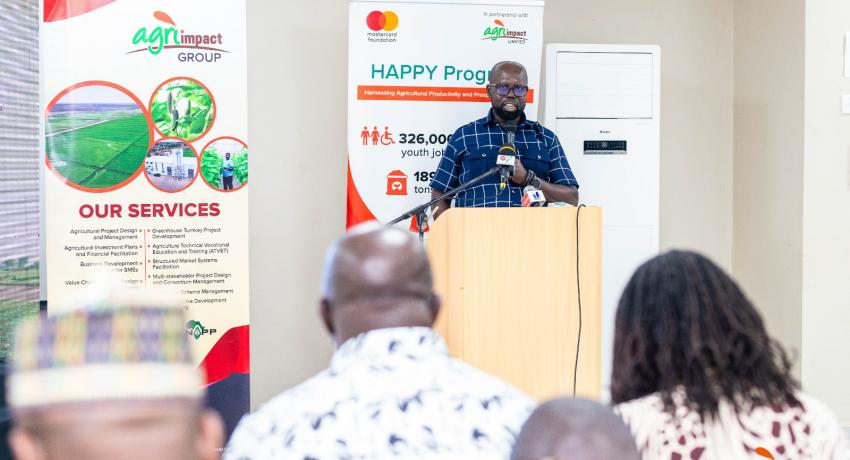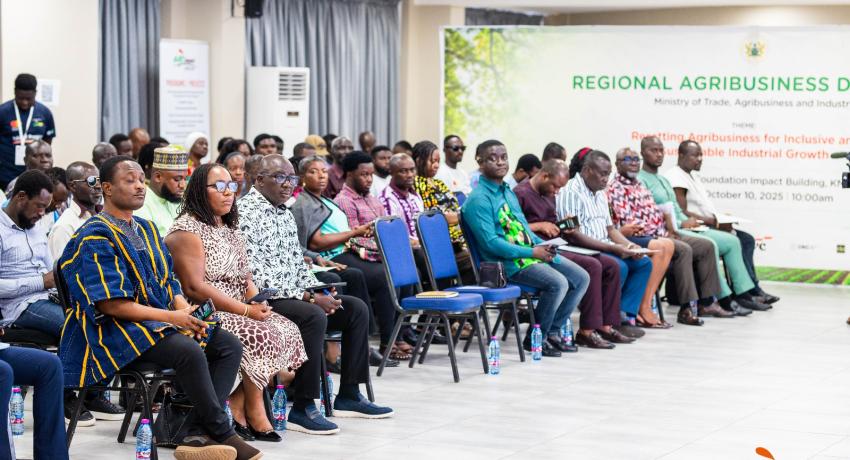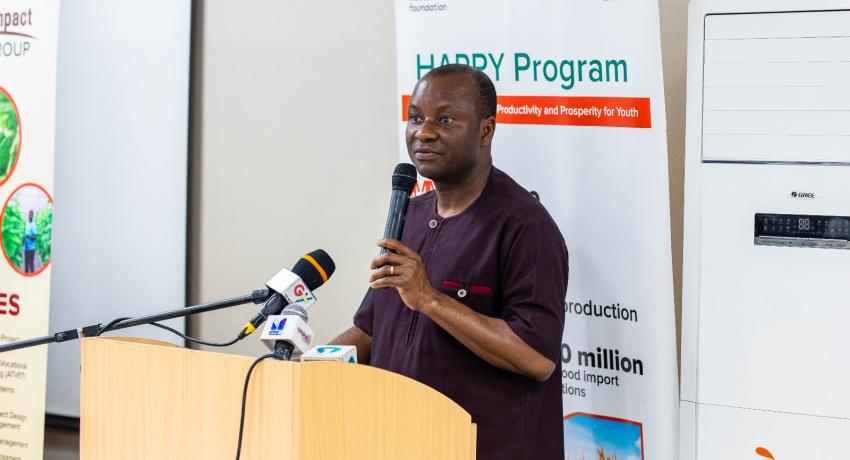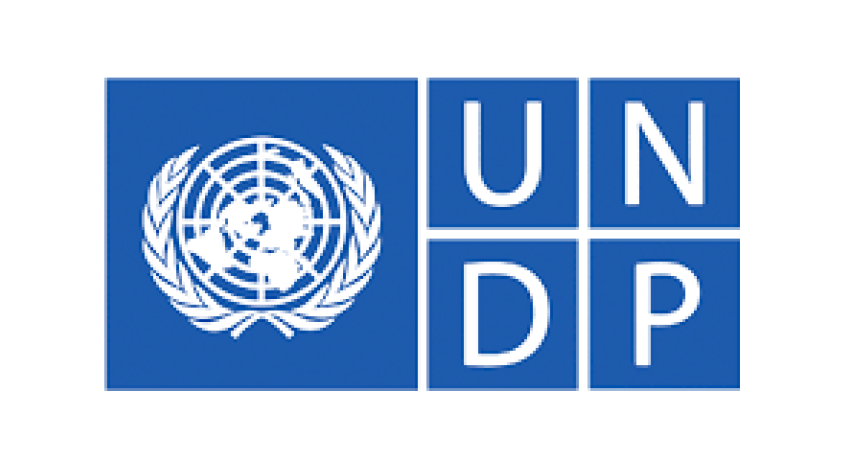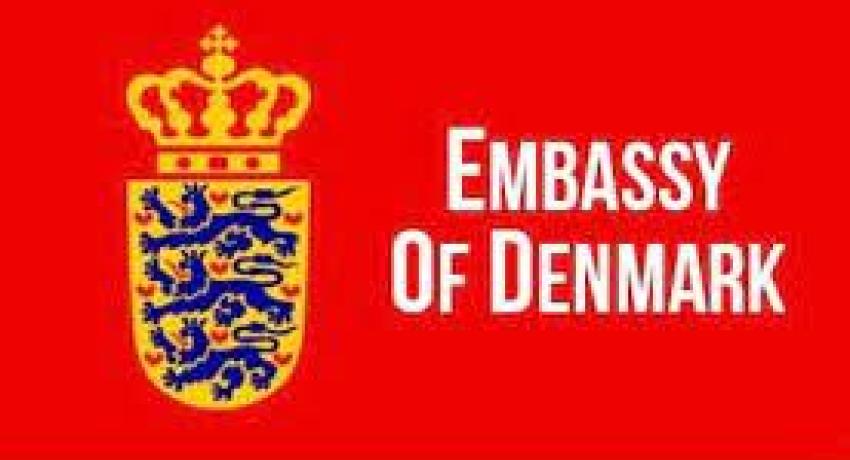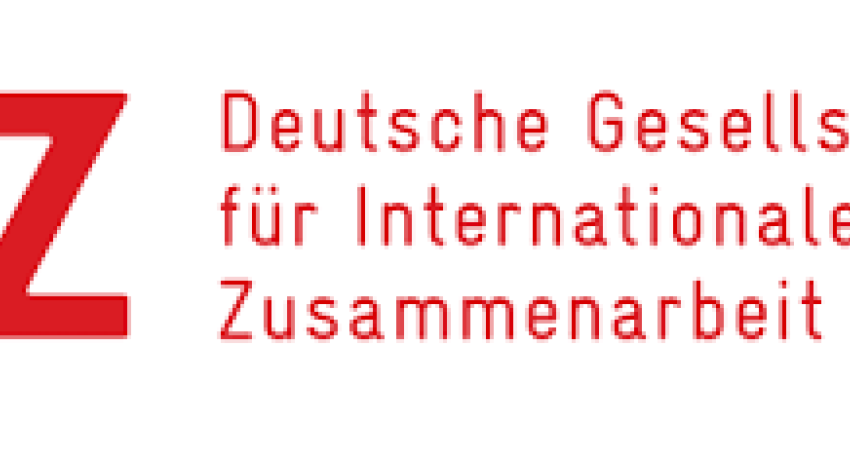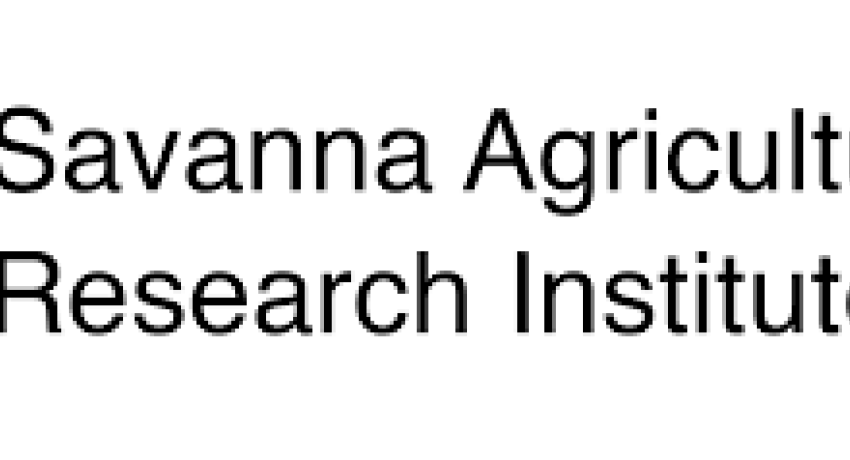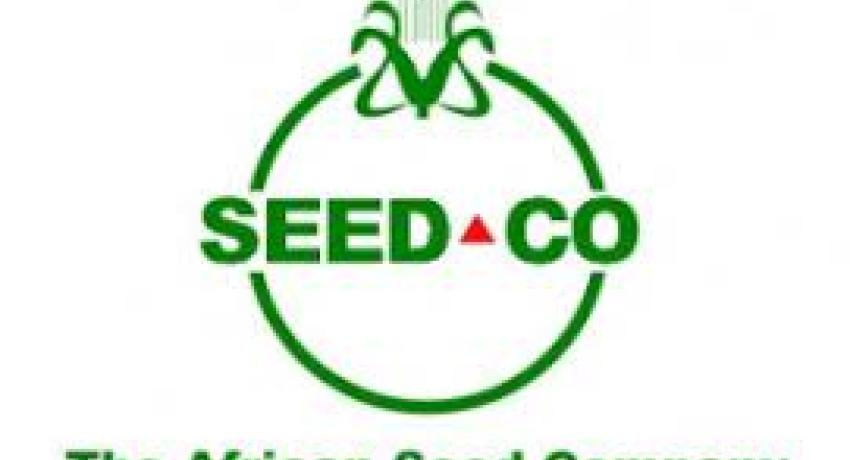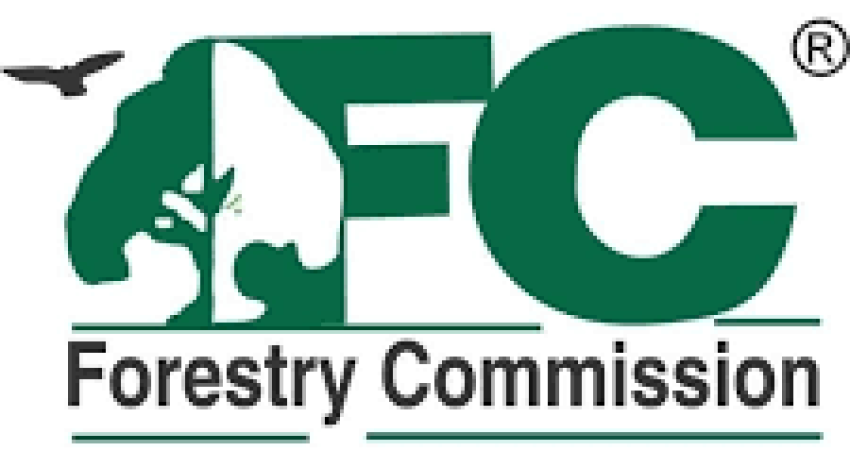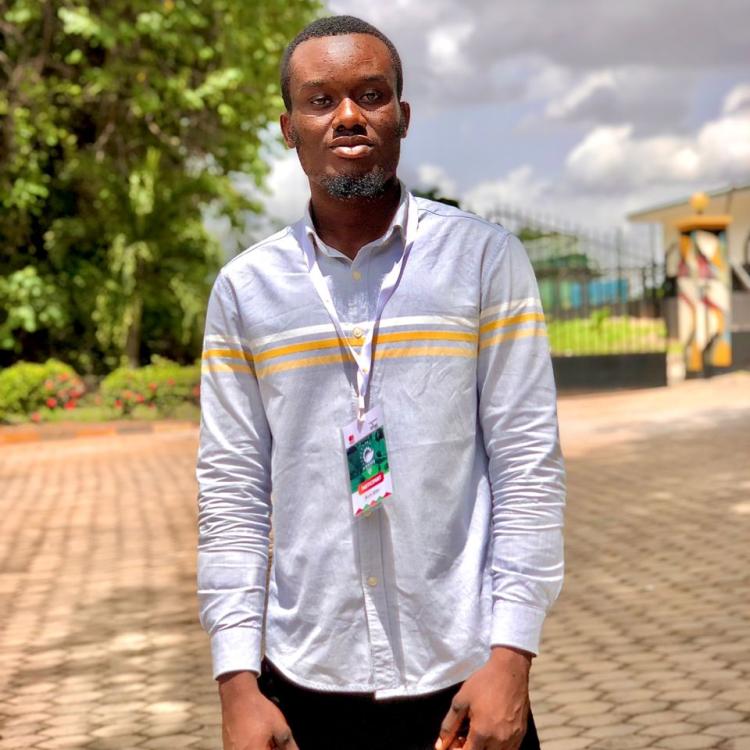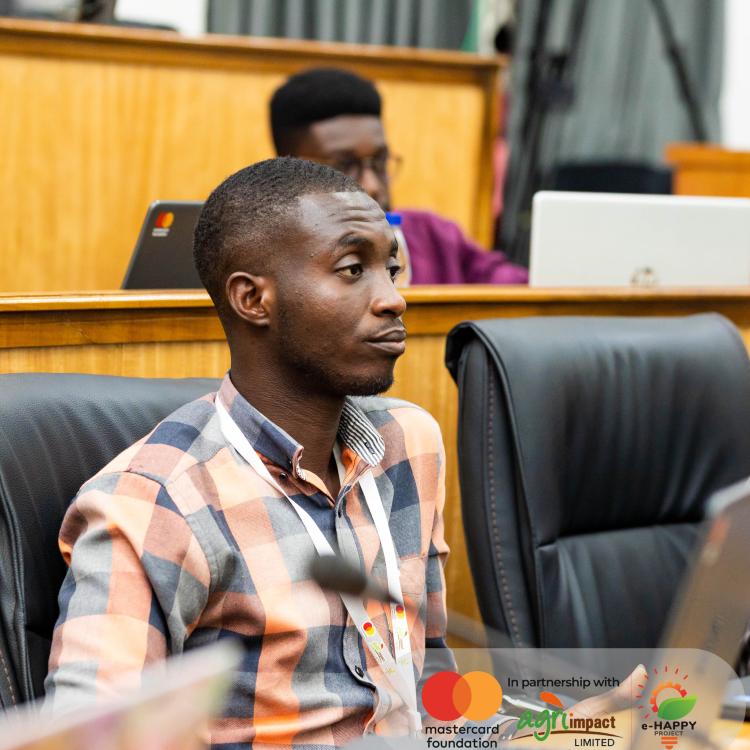The Ministry of Trade, Agribusiness and Industry (MoTAI), together with leading agribusiness firm Agri-Impact Limited, PwC, and other key partners, have held the first in a series of regional agribusiness dialogues aimed at gathering input for Ghana’s forthcoming National Agribusiness Policy.
The first regional dialogue came off in the Ashanti Region on Friday, October 10, 2025, and was held at the Impact Building of the Kwame Nkrumah University of Science and Technology (KNUST).
This follows the National Agribusiness Dialogue held in July 2025, which was graced by the President, His Excellency John Dramani Mahama, and the sector Minister, Elizabeth Ofosu-Adjare.
Several agribusiness industry players gathered in Kumasi to contribute their insights toward the formulation of the policy.
While addressing the stakeholders, agribusiness expert and CEO of Agri-Impact Limited, Mr. Daniel Fahene Acquaye, reiterated his call for the establishment of an AgriFund to drive the growth of Ghana’s agricultural sector and position it as a major pillar of the national economy.
“I have heard that we are channeling royalties from oil and mining into the Big Push Agenda. In that agenda, we hope agribusiness will also receive a big push.
A few days ago, I saw reports that the government is setting up a sports fund. I’m not sure whether that is confirmed, but if it’s true or even in the pipeline, then it raises a broader question.
For years, I have asked: if we say agriculture is going to transform our economy, why don’t we have an AgriFund?”
Mr. Acquaye also emphasized the urgent need to reduce the country’s post-harvest losses, noting that such wastage could feed the entire Ashanti Region for more than a year.
“Why are we still where we are? We continue to import about $2 billion worth of food annually, while our post-harvest losses are estimated between $1.9 and $2 billion.”
“Recently, I did some calculations and realized that the value of food and non-alcoholic beverages consumed in the Ashanti Region alone is GH₵14 billion.
That’s about $1.2 billion, depending on the exchange rate used. If our post-harvest losses amount to $1.9 billion, it means the food we lose each year could feed the entire Ashanti Region for more than one and a half years.”
“So why do we continue to glorify these figures? This must change. Let us reset for transformative agri-investments,” he added.
Kwame Ntim, Head of Agribusiness at MoTAI, in his address, explained the rationale behind the agribusiness regional consultations.
“The agribusiness sector had operated in a fragmented manner, with no single policy guiding it. When His Excellency President John Mahama took office and brought agribusiness under the Trade Ministry as a distinct directorate, we saw the need to develop a policy to guide agribusiness activities.”
“We therefore engaged key stakeholders who helped us put together a strategy, hence the need for a national dialogue to create a strategic platform for partners to identify priority areas that would inform the formulation of the policy.
During the national dialogue, we realized that although there were various sectoral diversities, there were also cross-cutting issues.
We recognized that Ghana must reset its fragmented initiatives into a coherent and long-term strategy for the sector’s growth,” Kwame Ntim added.
A Partner at PwC Ghana, Hayfron Aboagye, who also spoke at the event, emphasized the need for collective effort to unlock Ghana’s agribusiness potential.
“Hearing from industry players, it is clear that we have a lot of work to do as a country. It baffles me that when you travel across Ghana and see the vast stretches of untapped land, we still describe ourselves as poor.
This shows that, as a nation and as individuals, we have a huge role to play. We believe that agriculture and agribusiness present a critical challenge that requires collective solutions.
Our hope is that Ghanaian businesses will grow to a level where other countries can import from us.”

